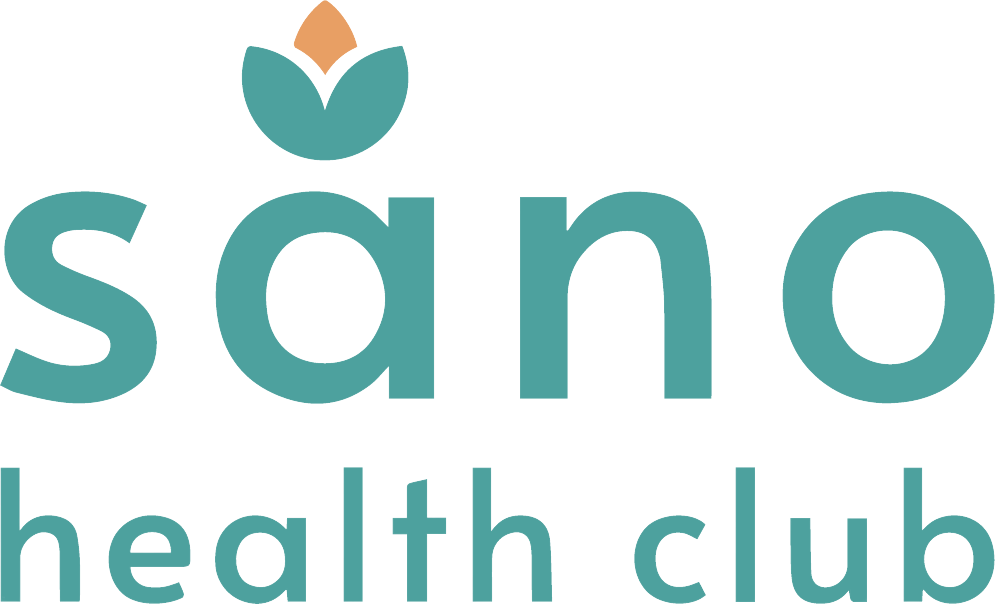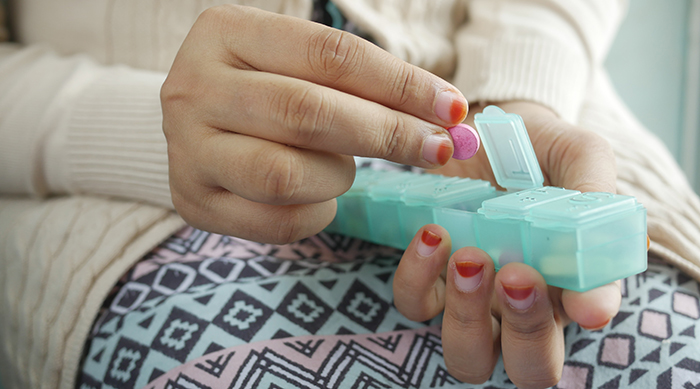The benefits of hormone replacement therapy can be life changing for women going through menopause. For some menopausal women, HRT may stop symptoms entirely.
While HRT can help alleviate a number of symptoms for menopause and perimenopause patients, it isn’t without risks. The good news is, there are plenty of alternative treatments for managing menopause symptoms.
Common alternatives for HRT include diet, lifestyle changes, herbal supplements, and some medications. Before you ditch your current regimen, talk to a trusted healthcare professional to best advise you about your hormone needs.
Here’s what you need to know about HRT alternatives, what to expect, and how to ensure you’re on the same page with your provider.
When to Start Looking for HRT Alternatives
When considering whether or not to take HRT alternatives, there is an important question to ask first: Should I take HRT?
You should consider HRT if you are beginning to experience menopausal symptoms such as:
- Vaginal dryness
- Night sweats
- Hot flushes or hot flashes
- Bone thinning, known as osteoporosis
- Anxiety
- Mood swings
- Lowered sex drive
These are some of the most common symptoms of menopause to discuss with your health care provider.
While rounds of traditional HRT using Premarin are standard, some alternative therapies show promise.
1. Lifestyle Changes
Treatment options available for menopausal women can greatly improve symptoms without more invasive methods that disrupt the body’s basic body chemistry.
These types of complementary therapies can be helpful interventions before more drastic measures with potential increased risk are taken.
Adjust Your Diet
What you eat plays an enormous role in your body’s overall function. Dietary changes can help decrease symptoms in menopausal and postmenopausal women. Here are some changes you can make:
- Limit stimulants like coffee and tea.
- Cut back on spicy foods.
- Avoid alcohol.
- Choose organic, non-GMO soy
Phytoestrogens are plant-based estrogen compounds that may be used to relieve menopausal symptoms. Common foods with phytoestrogens include soy products (tofu, edamame) and chickpeas).
Eat a balanced diet rich in magnesium, vitamin D, and other foods that boost GABA.
GABA is the brain’s natural anxiety-fighting chemical and can help calm you down during hot flashes and psychological disturbances.
Changing your diet can be, by far, the least invasive treatment with the fewest side effects.
Get Regular Exercise
We can’t really overstate the benefits of regular exercise. Not only does exercise promote women’s health across the board, but also reduces blood pressure and lowers your risk of heart disease and anxiety. During menopause, staying active can:
- Reduce your risk of osteoporosis
- Stabilize your blood sugar
- Increase your energy
- Boost your mood
Be sure to include different types of exercise in your routine, including:
- Aerobic
- Strengthening
- Flexibility
Address Mental Health Concerns
Most women know that menopause brings things like hot flashes and night sweats. However, fewer people are aware of the negative impact on mental health menopause may bring.
Fortunately, there are plenty of ways to address both sets of symptoms. Cognitive behavioral therapy can reduce some menopause symptoms. Some complimentary therapies that may help lower stress include:
- Massage therapy
- Yoga
- Aromatherapy
- Reflexology
- Acupuncture
2. Supplements
Your healthcare provider may recommend any number of mineral supplements or herbal remedies to help alleviate vasomotor symptoms like hot flashes.
Many of these dietary supplements are over-the-counter and widely available.
Dietary Supplements
Depending on your diet, you may want to incorporate supplements into your daily routine. During menopause, it’s important to get enough calcium and vitamin D in order to fight osteoporosis. Other vitamins and minerals that can help include:
- B Vitamins can boost your energy and help reduce night sweats.
- Vitamin E may help reduce hot flash severity.
- Omega 3s can combat vaginal dryness and improve mood.
- GABA helps fight mood swings and depression.
- Ginseng can boost your energy and improve brain function.
Herbal Supplements
More than half of American women are proactive about their health. Some take herbal medicines as part of this regimen.
Popular herbal medicines for menopause symptoms include:
- Dong Quai may act like estrogen.
- St John’s wort may balance mood and improve sleep quality.
- Evening primrose oil may help with lubrication.
- Black cohosh may help balance hormones.
- Milk thistle may help balance hormones.
- Rhubarb Extract may decrease hot flashes and improve sleep
Though popular, the efficacy of certain herbal remedies is uncertain.
Many herbal medicines like St John’s Wort have long lists of potential side effects that rival those of menopause itself. Dizziness and fatigue are the most common side effects, but gastrointestinal issues may also occur. Talk to your healthcare provider before starting any new supplements.
3. Medications
SSRIs (selective serotonin reuptake inhibitors) and SNRIs are often used to help menopause without HRT.
Psychiatric medications have been a frontline treatment to combat menopausal symptoms. This is because antidepressants and mood stabilizers are also used to treat depression, anxiety, insomnia, and mood swings.
Caution: Many medications for menopausal symptoms have extensive side effects. They are not right for everyone, and may be difficult to stop taking. Make sure you have all of the information before agreeing to medication to address your mental health or menopause symptoms.
Clonidine
Many women experience high blood pressure during menopause, especially those who have never experienced high blood pressure before. Drugs like clonidine keep blood pressure under control.
The medicine works by relaxing blood vessels and lowering the overall pressure the heart is pumping. Clonidine also helps to reduce hot flashes.
Gabapentin
Like its cousin GABA, gabapentin reduces the intensity and duration of hot flashes.
4. Bioidentical Hormones
Unlike traditional HRT, bioidentical hormone therapy or natural hormone therapy uses chemical compounds that are identical on a molecular level with the hormones our body naturally produce. The chemical structure is identical so our body recognizes these chemical messengers.
Many of these hormones are derived from plants (like yams). Estradiol, estrone, micronized progesterone and testosterone are the most commonly used bioidentical hormones.
Somewhere between 1 and 2 million women moving through menopause are using these chemically identical hormones.
Many doctors differ on opinions regarding bioidentical hormones’ use and efficacy as an alternative for traditional hormone replacement therapy. While the WHO and the FDA agree that these bioidentical hormones are not the preferred treatment, that view is changing. Researchers have found that bioidentical hormones have fewer risks than traditional HRTs.
Talk to a Healthcare Professional
Because there are so many options for hormone therapy, it is more important than ever to have a firm understanding of your body’s individual needs. Talk to your healthcare professional before implementing any new routines to balance your hormones.
Contact us to learn about Sano Health Club and to sign up for a membership.
Not quite ready to book? Subscribe to our email newsletter for the latest in functional healthcare!
Sources
- Kroenke, C. H., Caan, B. J., Stefanick, M. L., Anderson, G., Brzyski, R., Johnson, K. C., LeBlanc, E., Lee, C., La Croix, A. Z., Park, H. L., Sims, S. T., Vitolins, M., & Wallace, R. (2012). Effects of a dietary intervention and weight change on vasomotor symptoms in the Women’s Health Initiative. Menopause (New York, N.Y.), 19(9), 980–988.
- Santoro, N., Epperson, C. N., & Mathews, S. B. (2015). Menopausal Symptoms and Their Management. Endocrinology and metabolism clinics of North America, 44(3), 497–515.
- Strickland, J. C., & Smith, M. A. (2014). The anxiolytic effects of resistance exercise. Frontiers in psychology, 5, 753.
- Stojanovska, L., Apostolopoulos, V., Polman, R., & Borkoles, E. (2014). To exercise, or, not to exercise, during menopause and beyond. Maturitas, 77(4), 318–323.
- Mann, E., Smith, M. J., Hellier, J., Balabanovic, J. A., Hamed, H., Grunfeld, E. A., & Hunter, M. S. (2012). Cognitive behavioural treatment for women who have menopausal symptoms after breast cancer treatment (MENOS 1): a randomised controlled trial. The Lancet. Oncology, 13(3), 309–318.
- Mehrnoush, V., Darsareh, F., Roozbeh, N., & Ziraeie, A. (2021). Efficacy of the Complementary and Alternative Therapies for the Management of Psychological Symptoms of Menopause: A Systematic Review of Randomized Controlled Trials. Journal of menopausal medicine, 27(3), 115–131.
- Armour, M., Smith, C. A., Wang, L. Q., Naidoo, D., Yang, G. Y., MacPherson, H., … & Hay, P. (2019). Acupuncture for depression: a systematic review and meta-analysis. Journal of clinical medicine, 8(8), 1140.
- Sunyecz J. A. (2008). The use of calcium and vitamin D in the management of osteoporosis. Therapeutics and clinical risk management, 4(4), 827–836.
- Bani, S., Hasanpour, S., Farzad Rik, L., Hasankhani, H., & Sharami, S. H. (2013). The effect of folic Acid on menopausal hot flashes: a randomized clinical trial. Journal of caring sciences, 2(2), 131–140.
- Masoumi, S. Z., Kazemi, F., Tavakolian, S., Rahimi, A., Oshvandi, K., Soltanian, A., & Shobeiri, F. (2016). Effect of Citalopram in Combination with Omega-3 on Depression in Post-menopausal Women: A Triple Blind Randomized Controlled Trial. Journal of clinical and diagnostic research : JCDR, 10(10), QC01–QC05.
- Wang, Z., Zhang, A., Zhao, B., Gan, J., Wang, G., Gao, F., Liu, B., Gong, T., Liu, W., & Edden, R. A. (2016). GABA+ levels in postmenopausal women with mild-to-moderate depression: A preliminary study. Medicine, 95(39), e4918.
- Geng, J., Dong, J., Ni, H., Lee, M. S., Wu, T., Jiang, K., Wang, G., Zhou, A. L., & Malouf, R. (2010). Ginseng for cognition. The Cochrane database of systematic reviews, (12), CD007769.
- Kim, M. Y., Choi, S. D., & Ryu, A. (2015). Is complementary and alternative therapy effective for women in the climacteric period?. Journal of menopausal medicine, 21(1), 28–35.
- Kim, J. L., Kim, Y. H., Kang, M. K., Gong, J. H., Han, S. J., & Kang, Y. H. (2013). Antiosteoclastic activity of milk thistle extract after ovariectomy to suppress estrogen deficiency-induced osteoporosis. BioMed research international, 2013, 919374.
- Clement, Y. N., Onakpoya, I., Hung, S. K., & Ernst, E. (2011). Effects of herbal and dietary supplements on cognition in menopause: a systematic review. Maturitas, 68(3), 256–263.
- Maki, P. M., Kornstein, S. G., Joffe, H., Bromberger, J. T., Freeman, E. W., Athappilly, G., Bobo, W. V., Rubin, L. H., Koleva, H. K., Cohen, L. S., & Soares, C. N. (2019). Guidelines for the Evaluation and Treatment of Perimenopausal Depression: Summary and Recommendations. Journal of women’s health (2002), 28(2), 117–134.
- Maas, A. H., & Franke, H. R. (2009). Women’s health in menopause with a focus on hypertension. Netherlands heart journal : monthly journal of the Netherlands Society of Cardiology and the Netherlands Heart Foundation, 17(2), 68–72.
- Freedman R. R. (2014). Menopausal hot flashes: mechanisms, endocrinology, treatment. The Journal of steroid biochemistry and molecular biology, 142, 115–120.
- Saadati, N., Mohammadjafari, R., Natanj, S., & Abedi, P. (2013). The effect of gabapentin on intensity and duration of hot flashes in postmenopausal women: a randomized controlled trial. Global journal of health science, 5(6), 126–130.
- Dubaut, J. P., Dong, F., Tjaden, B. L., Grainger, D. A., Duong, J., & Tatpati, L. L. (2018). Prescribing bioidentical menopausal hormone therapy: a survey of physician views and practices. Journal of Women’s Health, 27(7), 859-866.
- Holtorf K. (2009). The bioidentical hormone debate: are bioidentical hormones (estradiol, estriol, and progesterone) safer or more efficacious than commonly used synthetic versions in hormone replacement therapy?. Postgraduate medicine, 121(1), 73–85.


